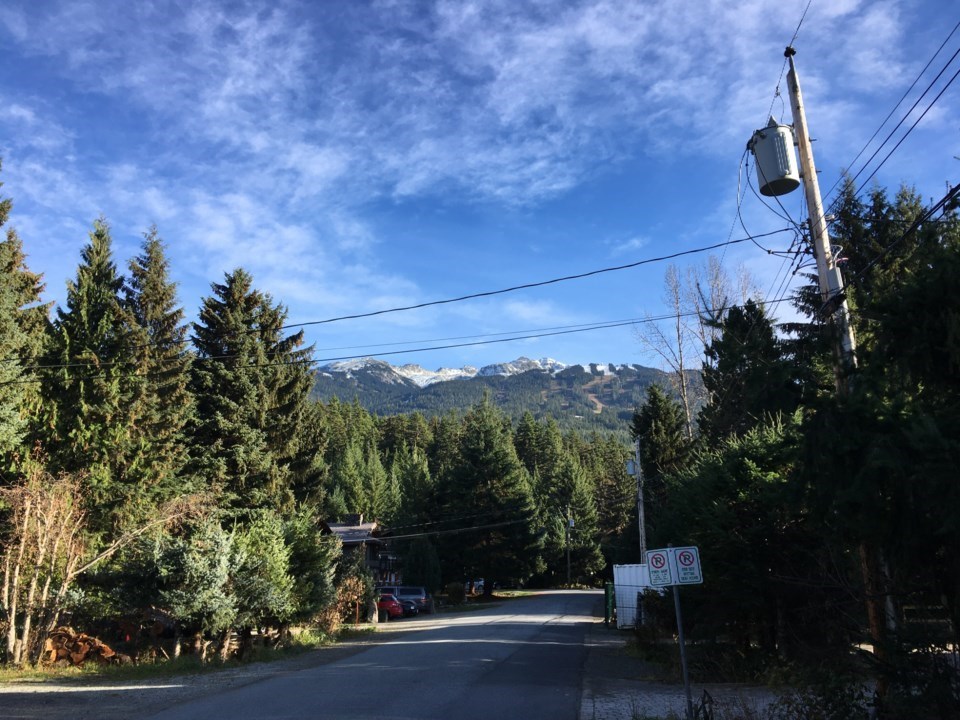In the six or so years that I covered Whistler’s municipal council, I watched our elected officials make a lot of decisions.
There were always questionable calls in any given year, of course—mostly related to project spending, or budget priorities—but in most cases I could at least make reason out of council’s direction.
Sometimes it just comes down to a simple difference in perceived priorities, or philosophies. To use just one example, I still believe there is ample opportunity for the Resort Municipality of Whistler to make compromises in the interest of shrinking its bloated budget, as literally every other institution in town had to do during COVID, rather than simply get bigger, as council opted to do in August 2021.
Others at municipal hall abide by a different philosophy. Fair enough.
While municipal council agendas can often charitably be described as dry, every once in awhile an agenda item comes along that is deeper than it appears—even if you have to do some digging to get at the underlying themes.
Being specific to White Gold, the project to bury power lines initiated in 2019 doesn’t affect all of us, but it touches on a few universal Whistler themes: the have-it-alls versus the getting-bys; out-of-towners versus permanent residents; the desire for expensive, arguably unnecessary aesthetic improvements.
Rigidity of governmental process versus simple, moral common sense.
Before I go any further, perhaps some background is in order.
Under Section 212 of the Community Charter, homeowners may petition a municipality for a “local service area,” which allows them to initiate certain projects in their neighbourhood—in this case the undergrounding of hydro lines—at their own expense.
In 2019, 93 of 160 affected White Gold properties—about 58 per cent—voted in favour of the local service area, which would allow residents of White Gold to pay for the project via an add-on to annual property taxes over a number of years.
When it was first presented in December 2020, the total estimated cost for homeowners was pegged at $4,675,000, which could be covered by each affected resident with a lump sum payment of $38,751, or 30 annual parcel tax payments of between $1,130 and $1,230.
Now, that cost is apparently closer to $7.5 million, according to the RMOW—or about $47,000 per resident.
In February 2021, an alternative option was briefly available for homeowners: an overhead connection with a utility-owned pole on the public road.
This option allowed owners to avoid the hassle of organizing the work, as well as the extra costs associated with undergrounding on their properties, but no matter what, they’re still on the hook for $46,801—or 30 easy parcel tax payments of $2,438.
The project isn’t just about aesthetics for everyone; some see the power lines as a fire risk, and burying them as common sense.
It’s also not just about defined divisions; some of those in favour are also long-term locals.
But for 67 or so Whistler homeowners, the extra cost is likely not wanted or appreciated.
For some people, $50,000 is not a lot of money. For others, it is life-changing.
And in exploring that simple economic juxtaposition you’ll find a microcosm of all of modern Whistler’s philosophical dilemmas, crammed comfortably together in—where else?—a boring-ass municipal council agenda item.
The municipality says it is still working to finalize cost estimates, and that if the cost does indeed come back higher than the original petition value, council will decide on whether to re-petition residents.
I’ll be interested to see where the project goes from here.
Council’s original stated reason for approving the project—both in its first approval, and in a reconsideration a few weeks later—was based on rigid, governmental process. To deny a resident-initiated local service area, permitted under the Local Government Act, would set a bad precedent, said those who voted in favour.
They spoke as if their hands were all but tied.
But in meeting with B.C.’s minister of municipal affairs at last year’s Union of BC Municipalities Convention, council was apparently told that, no, it could have just denied the petition (a fact I felt was made clear by staff in its presentations way back in late 2020).
Go figure.
In other words, council could have voted its conscience—as Councillors Jen Ford and Cathy Jewett did—rather than saddle already-strapped, longtime Whistler locals with more completely unnecessary debt in the middle of a pandemic over “process.”
I should add, as I like to do, a disclaimer, and say I don’t envy elected officials in the slightest. It’s a thankless job, and it’s impossible to please all of your constituents. In this case, a majority of White Gold residents approved of the petition, and wanted to see their power lines buried. I’m sure council was happy to have the crutch of process to lean on in making this difficult decision.
But after checking in with some of those who were (and remain) opposed, one thing remains clear—the process itself has been clear as mud.
“I know very little, as I never had enough information to ask for quotes from the myriad of involved parties in this project. It seems that any potential cost-ameliorating benefits were dismissed by the services involved,” said one longtime Whistler local, when asked for an update.
“One thing seems certain—I will be buried in debt along with the power lines.”




